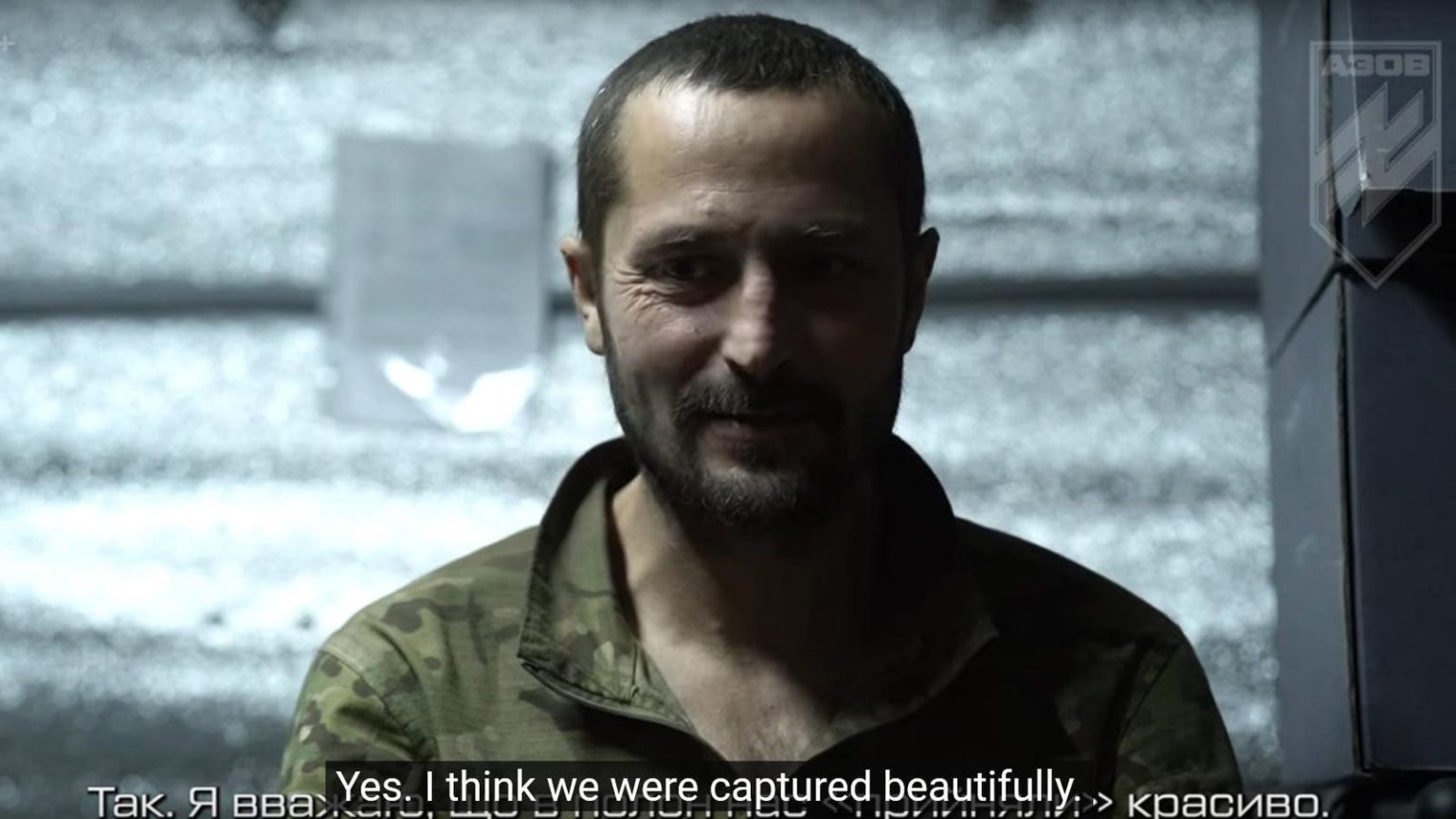This summer, Ukrainian national guardsmen from the 12th Azov Brigade liberated a small section of the Kreminna Forest in eastern Ukraine. For the most part, the brigade fought like it usually fights: with swift, violent infantry assaults. But in one case, a team of Azov guardsmen posing as Russian soldiers tricked three Russians into surrendering without a fight—and captured the whole farce on video.
Even the Russians were impressed. “Five-star” is how one of the prisoners rated his capture. “I think we were captured beautifully,” another said.
The three Russians—two from the 153rd Tank Regiment and one from the 69th Covering Brigade, a border patrol unit—held a trench presumably at the forward edge of the battlefield.
Their commander had left to look for food … and never came back. The three men in the trench said they assumed he’d been wounded. They didn’t have a radio—and besides, Ukrainian jamming made communication difficult even with a fully charged radio.
The three Russians were hungry and thirsty. Averin Valeriy Vasilievich, a 52-year-old rifleman with the 153rd Tank Regiment, took the kettle and left the trench to fetch water. That’s when he met three soldiers who appeared Russian, because they spoke Russian and were presumably dressed in Russian-style uniforms.
The Azov troopers played the role of Russian air assault reconnaissance troops who, they claimed, had been sent by the Russian command to locate the three lonely Russians in their isolated trench. The Ukrainians feigned irritation. “Why do we have to go and look for you here? Don’t we have anything else to do?”
The other Russians left their trench, unarmed, in order to meet their supposed allies. The Ukrainians made small talk with the three Russians—mocking their absent commander and claiming he’d called the three “idiots”—and then distracted the hungry Russians with a Snickers bar, split three ways.
And then punchline to this elaborate joke. “You’ve ended up in the hands of a purebred Ukrainian,” one of the Azov troopers said. The Ukrainians instructed the Russians to lie down and put their hands behind their heads. “Behave well,” one Ukrainian said. “Everything will be fine.”
Back at the Azov base, the Russian prisoners feasted on coffee, sausages, buns, waffles and fruit. Vasilievich recalled how he’d wound up in the army—and then far from home in Ukraine. He said he was drinking at a friend’s bar in Moscow when recruiters rolled up in a van and forced him to sign an army contract.
His training was worse than cursory, he said. Asked to rate it from one to 10, Vasilievich said, “Zero.” That might explain his ambivalence toward his captivity. “Mom, brother, I’m fine,” he said, addressing his family back home. “Everything’s okay.”
Read the full article here





